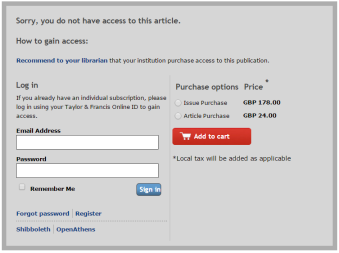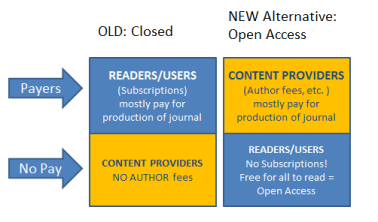Access Denied.
With my dissertation project underway, I am constantly having to look up and research scientific to further my knowledge of the topic. I think that one of the biggest issues that students face in this area is of not having access to certain papers or journals. Trawling the net for useful information becomes much harder when access is denied, and is not beneficial for either the student or the author of the article.
Open access is where digital content is provided free of charge, and free from most copyright and licensing restrictions. Unfortunately, the average cost of accessing scientific journals, is now over $1000, with some subscriptions costing in the region of $40,000 (Shockey & Eisen, 2012)! Even prestigious institutions such as Harvard University calling for a change to open access of information, calling the situation “fiscally unsustainable”. This shows how I, and every other student, are directly affected by the restrictions with our learning being directly influenced by what we may access.
(This useful video explains more about open access and the MIT libraries)
One of the main purposes of scientific research is to open doors and be available to be accepted or rejected by others. It doesn’t make sense to for this work to go to waste through by nobody being able to read them. Ketchum and Klem (2012) call for a greater dissemination of scientific research, and less restrictions on access.They propose a business model in which the content providers pay for the journal production which would allow the users of the journals to access them for free.
People may argue that authors should not have to pay journals to get their articles published, although many institutions will actually cover publishing fees when providing grants for research. By providing open access, authors will also be able to more easily be able to share information and become known in the scientific world.
From my point of view, open access would be an amazing advantage and would even allow me to continue reading papers once I no longer have University access.
References:
Ketchum, A, M. and Klem, M. (2012). Open Access Journals: the Pros and Cons. Research Methodology Series – Continuing Education. [Powerpoint presentation]. University of Pittsburgh School of Nursing. Retrieved from: http://d-scholarship.pitt.edu/11102/
MIT Tech TV. (2011, Mar 22). Open Access and the MIT libraries.[Video file]. Retrieved from: http://techtv.mit.edu/videos/11471-open-access-and-the-mit-libraries
Sample, I. (2012). Harvard University says it can’t afford journal publishers’ prices. The Guardian. Retrieved from: http://www.theguardian.com/science/2012/apr/24/harvard-university-journal-publishers-prices
Shockey, N. & Eisen, J. [Piled High and Deeper (PHD Comics)]. (2012, Oct 25). Open access explained. [Video file]. Retrieved from: https://www.youtube.com/watch?feature=player_embedded&v=L5rVH1KGBCY
Shuttleworth, M. (2008). Aims of research. Explorable.com. Retrieved from: https://explorable.com/aims-of-research


